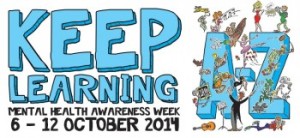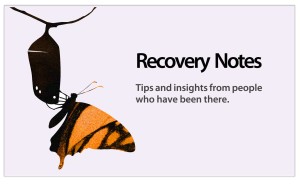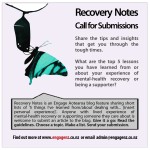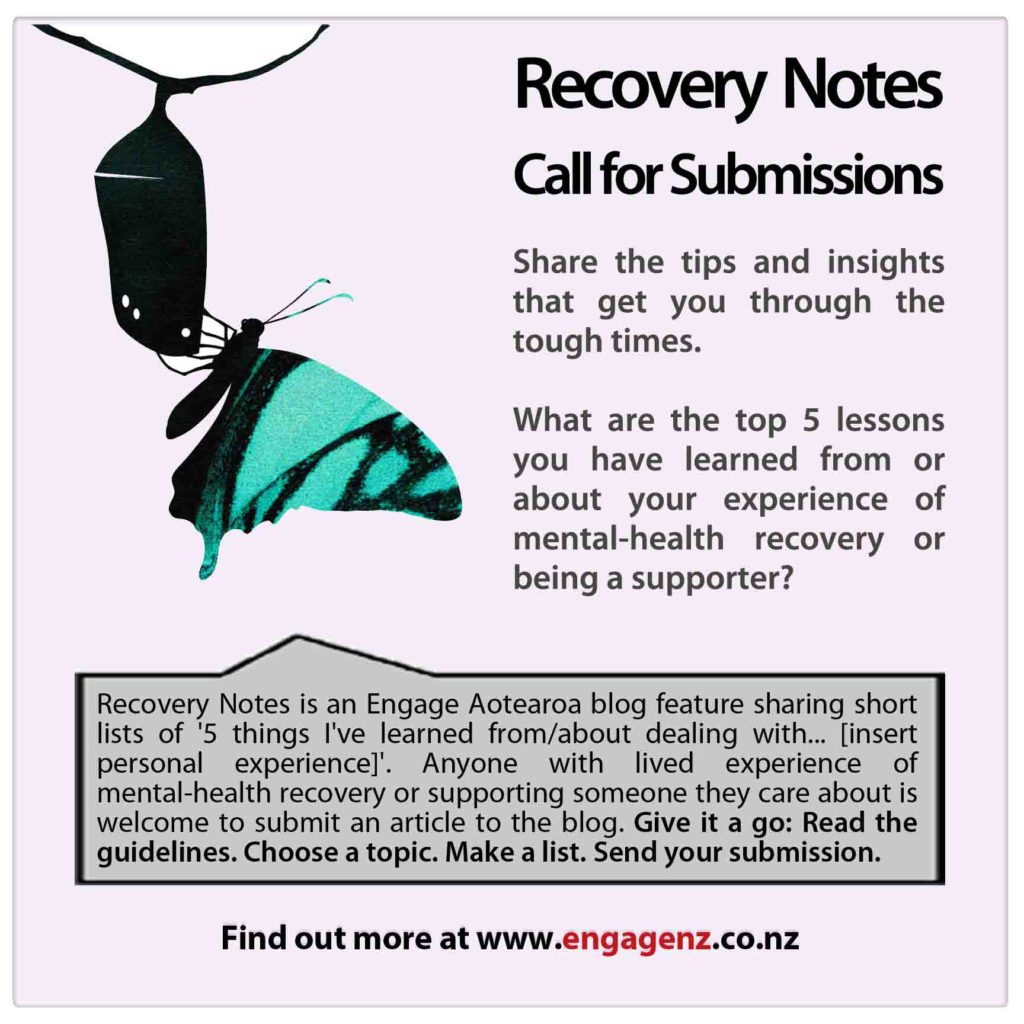The videos of all interviews broadcast for the Mental Health and Happiness Summit on World Mental Health Awareness Day are now online here.
You can also check out the Mental Health & Happiness Daily Challenges here.
The videos of all interviews broadcast for the Mental Health and Happiness Summit on World Mental Health Awareness Day are now online here.
You can also check out the Mental Health & Happiness Daily Challenges here.
1. It’s okay to not be okay
It is not a weakness to experience depression, anxiety, and other forms of distress as a teenager. It is quite common! Society tells us that we should look and behave in certain ways, and that we have to fit a certain stereotype in order to simply be accepted. I didn’t think it was okay to be struggling with depression when I was a teenager. I thought it meant I was weak and worthless. But admitting that I was not okay and that I did not know who I was took me on a journey of incredible discovery. I came out the other end of the dark tunnel with strength, purpose, and value for my life. I wouldn’t change a thing.
2. Connection is the key
It is incredibly lonely when experiencing depression – and I almost think it is more lonely when you experience depression as a teenager, during the life-stage in which you are trying to figure out how and where you fit in the world. At a time in your life when you are trying to fit in, you fall into a dark hole that isolates you – giving you no opportunity to find your place in the world. I isolated myself and was anxious to interact with anyone. However, the most useful thing for me was the one thing I did not want to do – it was to spend time with friends, family, and people who understood what I was going through.
“When you are at the bottom of the dark hole, it feels like every movement causes you to fall deeper. It is extremely difficult to see that each step actually takes you closer to the light of day.”
3. Asking for help actually helps!
Looking back, I had friends around me going through similar struggles, and I wanted them to be honest, ask for help, and let me support them. I saw them as courageous when they confronted their fears, darkness, and failures head-on. I learned that it takes more courage to be vulnerable, ask for help, and accept others’ support than it does to wrestle alone in the dark. I learned that friends, family, and professionals actually wanted to help me. Each time that I reached outside of myself and asked for help, my burden was lightened a little bit because it was shared with another. Even if the problem was not solved by the other person, at least I felt more understood, more loved, and less alone.
4. Balance between trust and supervision
I am sure my adolescent self would not admit this, but I’ve learned from looking back at my experience that it was helpful to have a balance of trust and supervision from my parents. I think this balance is largely determined by what is safe for us. As I built up trust with my parents, the amount of supervision I needed decreased. I found that, as my parents trusted me more, I learned to trust myself more – giving me confidence in myself. From my view, the helpful parent provides love, encouragement, support, practical help, and compassionate supervision.Blaming, minimising, or not being taken seriously are not helpful. Being listened to, provided with appropriate help, and shown compassion are essential.
5. It is never the end
There is always hope. I know clichés like “there’s a light at the end of the tunnel” often don’t provide much reassurance at the time, but it turns out they are actually true. When you are at the bottom of the dark hole, it feels like every movement causes you to fall deeper. It is extremely difficult to see that each step actually takes you closer to the light of day. But others can see it. Others can see the bigger picture because they are not in the dark hole with you. In these times, when all hope seems to have escaped you – I learned that I could rely on at least one person around me to hold the hope for me. When I could not see it, they could. When I could not believe, they believed. They held my hope, and gave it back to me when I could hold it again. It is never the end. There is always hope.
Emma Edwards
_ _ _ _
About the author: Emma Edwards is currently completing her doctorate degree. She was previously a registered mental-health professional, working in youth and adult mental-health settings. Her own service-user and family experience with mental-health struggles sparked her passion to support others and make a difference to those struggling to cope with difficult times.
Recovery Notes is an Engage Aotearoa project that asks people to share the top five tips and insights they have learned from or about their personal experiences of mental-health recovery or being a supporter.
_ _ _ _
Copyright (c) Engage Aotearoa, 2014

In support of this year’s Mental-Health Awareness week theme, ‘Keep Learning’, the team at Engage Aotearoa have added two new pages of links to the Online Resources Pack for you to explore. Find new online sources of distraction/entertainment, self-help tools, information, support and recovery stories – and keep learning for Mental-Health Awareness Week and beyond.
Click here to browse and save a copy of the updated file
New links include…
Find more Recovery Information Packs on the Engage Aotearoa website.
“Police are receiving 12,000 attempted or threatened suicide calls a year, increasing the strain on their resources.
The national figure of 11,939 calls last year amounts to an average of nearly 33 a day – and the figures have been rising steadily in the past five years.
But police say they have little expertise in the area of mental health, and the increasing time spent on callouts takes officers away from other duties.
They are now working with the Ministry of Health in an effort to understand why people in distress – or their friends and family – appear to be ringing police rather than mental health crisis services.
One possibility they are looking at is that people may feel the police are now more likely to respond quickly to calls than clinical services…”
Read the rest of this article from The Dominion Post (30 Sep 2014) online here.
New Ways of Working in Mental Health Services: A qualitative, comparative case study assessing and informing the emergence of new peer worker roles in mental health services in England
~ National Institute for Health Research, July 2014
“Conclusions: Key barriers to, and facilitators of, peer worker role adoption were identified, including valuing the differential knowledge and practice that peer workers brought to the role (especially around maintaining personally, rather than professionally defined boundaries); maintaining peer identity in a role of work; changing organisational structures to support peer workers to remain well in their work; and challenging organisational cultures to empower peer workers to use their lived experience. Recommendations for future research include developing a theoretical framework articulating the change mechanisms underpinning ‘what peer workers do’, piloting and formally evaluating the effectiveness and cost-effectiveness of peer worker interventions, and mixed-method research to better understand the impact of working as a peer worker.”

1. De-claw the Bear
Talking about the most difficult stuff (the unwanted thoughts, the frightening images, fears, guilt and panic) takes their power away. These things are waking nightmares designed by my brain to purge the rubbish and if I don’t find a way to let them out and dispose of them they become a self-destruct mechanism. Speaking them aloud to someone empathetic and non-judgmental I can trust helps me to challenge their hold on me, come up with more balanced perspectives and talk through cause and solution.
2. Look for physical and environmental causes
Sure there are some moments where my distress/depression/mania/psychosis is an equal and opposite reaction to an external, significant, negative event; those moments are really tough and life feels very unfair. The upside of horrible things happening to me though is that it’s easy to see why my brain is in meltdown, and get support and empathy from others. Sometimes, however, it just hits me like a sledge hammer from seemingly out of the blue. In these times my experience tells me there is usually a physical cause, maybe my hormones have gone haywire, I’ve developed a food allergy, eaten unhealthily for too long (or not eaten at all) or typically, I’ve not had enough sleep. I know now that if I address the physical stuff, nurture my temple then my mental health follows.
3. Avoid the Sirens-song of Substances
We all know the myths of sailors lured by beautiful Siren song only to become shipwrecked on the rocks. It is very easy in my darkest moments to reach out for the easiest means of escape. “Self medication” for me nowadays is junk food and wine. In my darkest moments it is tempting to use them, or something more destructive as a quick way of blocking out, avoiding or putting off dealing with what’s really going on. I learned the hard way that even taking a single step in this direction when I’m unwell is bad, bad news. As difficult as it is, I need to remove the temptation completely from my home, my friendships and my life until the moment has passed and I feel in control enough to simply eat respectfully and drink in moderation.
4. Observe moments of choice
Mental distress is like a pot-bellied stove, it gets stronger by feeding on every little piece of negativity and fear and yet it is warm and inviting. It is easy to fall into the comfort of distress, it sounds contradictory but life IS unfair and horrible so sometimes the only thing I really want to do is escape under the bed-covers, take a respite from responsibility and shut out the world. In every single millisecond however I know I have a choice to turn that around. I forgive myself for needing a moment to wallow, then as soon as I notice the moment that don’t have to punish myself or anyone else, I make the conscious choice to do something different.
5. Take responsibility
Here’s the truth as I see it for me; it is not the rest of the world, the people around me, services, doctors or pharmaceuticals job to ‘cure’ or ‘fix’ me. They are helpful aides when I need support, but without my buy-in, they actually don’t have much effect. In fact, if I blame anyone or anything outside of myself I know the situation very quickly deteriorates. That doesn’t mean I need to blame myself, but adopting a radical acceptance of the situation I’ve found myself in and a willingness to do everything I can to improve it gives me back some semblance of control. It’s fair to say that when I’m at my worst, I feel completely out of control, so this step towards autonomy is imperative to becoming whole again.
~ Taimi Allan
_ _ _ _
About the author: Taimi Allan has worked as a mental health consultant since 2009. She is most well known in the field for innovative and engaging health promotion strategies that challenge attitudes, inspire creativity and entertain audiences.
Recovery Notes is an Engage Aotearoa project that asks people to share the top five tips and insights they have learned from or about their personal experiences of mental-health recovery or being a supporter.
_ _ _ _
Copyright (c) Engage Aotearoa, 2014
Some updates from our Facebook page (Like us!):
Every day brings a chance for young poets to be heard
New Zealand Herald talks about how being young can often mean a lot of people will disregard what you have to say.
Big Brother Is Feeling You: The Global Impact Of AI-Driven Mental Health Care
An article about the automation of psychology and the first AI-psychologist.
HYPE – Helping Young People Evolve
Sharing love of hip-hop and getting experience in music.
17 Beliefs About Sexual Assault That Are Totally Wrong
Despite the high-profile cases in the news lately, Cosmopolitan writes about major misconceptions that persist.
The Coping Kete No. 156: Extend the Image
I will practice using extended imagery as a way of coping with unhelpful thoughts of the future that hold me back.
It’s Mental Health Awareness Week from 6-12 October 2014 and World Mental Health Awareness Day on October 10th. Seeing as every week is Mental-Health Awareness Week at Engage Aotearoa, now seems like a good time to give everyone an update about what’s on the horizons here.
 Recovery Notes: Recovery Notes is a new series of blog articles by people with lived experience of recovery highlighting the lessons they have learned about or from their experiences. The CMHRT board of trustees are in progress with writing contributions that share the lessons they have learned from their journeys and the first one is out today. If you would like to try your hand at writing a Recovery Notes blog article, submissions are welcome from anyone with lived experience of recovery or being a supporter. Click here to read the Recovery Notes Writing Guidelines first.
Recovery Notes: Recovery Notes is a new series of blog articles by people with lived experience of recovery highlighting the lessons they have learned about or from their experiences. The CMHRT board of trustees are in progress with writing contributions that share the lessons they have learned from their journeys and the first one is out today. If you would like to try your hand at writing a Recovery Notes blog article, submissions are welcome from anyone with lived experience of recovery or being a supporter. Click here to read the Recovery Notes Writing Guidelines first.
Upgrading The Community Resources Directory: Engage Aotearoa went to a LifeHack Weekend earlier this year and got some help to get started with upgrading The Community Resources Directory so you can create a customised directory filled with the services for your region. The web-app is still in development and the volunteer directory editor, Cath, is continuing to add new services to the directory as we work on creating a truly nation-wide resource. You might notice the downloadable document got shorter recently – the team made the font smaller, to fit more on each page, so there’s actually more information listed than there was before. Don’t forget to keep sending your directory additions to Cath by emailing directory@engagenz.co.nz
One Year Anniversary of The Butterfly Diaries Vol 1: It has been one year since the launch of The Butterfly Diaries and the team has distributed over 700 books from Kaitaia to Invercargill and everywhere in between. Copies have been ordered by teenagers for themselves and their friends, worried family members, schools, counsellors, psychologists, psychiatrists, GP doctors, corrections facilities and universities. With no promotional budget and no funding outside of community donations, the team at Engage Aotearoa are pleasantly surprised that so many copies have already found wings. You can help raise awareness of the books by printing and placing a poster somewhere public or sharing one of the book reviews on social media (find them here and here).
The Butterfly Diaries Vol. 2: Engage Aotearoa continues to work on The Butterfly Diaries Volume 2 and it’s very close to publication. Volume 2 shares the stories of Jane and Tess. Jane has a history of difficult family relationships and intense emotions. Tess has a history of childhood trauma, domestic violence and dissociative identity disorder (often known as multiple personalities). Written by Genevieve McClean and Maureen Irvine, Between the Sun and the Moon, and Rebuilding Camelot tell two true stories of surviving the hardest parts of humanity and finding a way to thrive despite it all. Engage Aotearoa needs your help to publish The Butterfly Diaries Volume 2 and keep Volume 1 in print. Make a tax-deductible donation for Mental Health Awareness Week.
The Coping Kit Smart Phone App: It’s still coming! Good things take time.

As a person who has experienced my fair share of mental distress and who now works in the counselling field, I have learned a few things about how to be there for someone who is upset and how to ask others to be there for me. I wish this list had been available for me to give my friends and supporters in times past – I lost a few of them, at least partly because of the stress that supporting a friend who has longer term “stuff” going on put on our relationship.
1. You don’t need to fix: you don’t need to make someone feel better
We live in a fixing culture, and often when someone tells us what’s going on for them, we jump immediately to problem solving, or ideas for the person to do things differently to make them feel different. This is often not helpful as frequently the person can feel that they are not heard. This may also give the message that their less pleasant feelings are somehow ‘wrong’ and that if they tried harder to ‘fix’ them they would not have issues…
Instead of aiming to help someone feel better, if we concentrate on listening to their experience and validating it then often the person will walk away feeling heard, less alone, (and not surprisingly often feeling a touch better). Validating people’s feelings and experience is about just acknowledging where they are: “I can see how you would feel that…” “Wow, that’s a lot going on” “No wonder you feel overwhelmed.”
The opposite is invalidation (e.g. “I don’t see what the big deal is.” “There’s no reason to get so upset”) which can leave people feeling isolated and awful about themselves.
2. Friend and support versus therapist…
If someone is dealing with high levels of distress, then I would be strongly encouraging them to be engaged with health services (doctor, counselling, psychologist, mental health services) rather than just using friends for support. Counsellor’s and others who work with people in distress receive comprehensive training and regular supervision. Part of the reason they are able to offer such intensive listening and support to a person is because of this- and also because the time they give has boundaries around it and clear expectations.
When we try to be there for someone in a lot of distress outside of these professional relationships, often we start out with lots of energy and listening time and empathy. However, if the distress is not short lived, we often run into problems because we have not put boundaries around our time and availability. We tell our friend to call us at any time of the day and night- and when they start doing this, the supporter can be left burnout, not wanting to hear from their friend, guilty about feeling this way and sometimes even experiencing what is called ‘vicarious trauma’ from listening to really difficult and traumatic experiences.
If you are aware of this pitfall, then you can set some boundaries with the person. Boundaries are our friends! Some of these may not need to be discussed and you can just hold them in your own head, others you might like to talk about. You need to be clear about where your lines in the sand are about what you can and cannot offer: Are there things you don’t feel able to talk about with the friend and you would prefer they saw a professional? How late is it okay to call? What about if they are intoxicated? What if they are feeling that they might harm themselves? What if they want to stay over?
3. Think long haul
The boundary setting above is crucial if you intend to keep this person in your life long term.
I have had times in my life when a dear friend has let me know she isn’t available for any support at this time. While in the moment I would have preferred it to be different, I also understood that her letting me know this was about her wish to be a friend for the long haul and to do this, she needed to prioritise her wellbeing.
I would far rather have her in my life for years to come, than lose this friendship because she got exhausted. In return I have learned to set similar boundaries with friends in distress – letting them know I care very deeply but I don’t have the capacity for support right now. I would always encourage people to be developing a number of supports for themselves- I feel it leads to far healthier relationships.
Some people experiencing distress are hyper aware of asking for ‘too much’, and as a result often won’t ask for support they need because of their fear. Talking about this issue can really encourage them to reach out at the appropriate time, knowing you will be able to say “not today” if you need to.
4. Reciprocity
When I was a teenager I had a good friend who didn’t tell me until weeks afterward that she was living with another family for a while because her parents were fighting and might be splitting up. I asked her why she hadn’t told me, and she said that she didn’t want to put any other stress on me because I was having such a hard time. I heard her thoughtfulness, but at the same time I was dismayed, because I didn’t just want a friend- I wanted the chance to be a friend. I would have liked to take the opportunity to give back to her with some listening and support. Our friendships work best when there are vaguely equal amounts of give and take- so don’t be afraid to ask your friend who is distressed for things you might need. If they can’t give this at the time- well this is also a good chance for them to practice boundary setting and say no (remember- boundaries are our friends).
5. Look after yourself
You matter, and you need to keep an eye on your own well-being. Sometimes when someone we love is really struggling we can tell ourselves we should just keep giving and giving to them because they are having a harder time than us. In the long term, this really does not do ourselves or them any good.
Don’t underestimate the stress of having someone you care about really struggling. Good sleep, a wide variety of food, some sunshine and physical activity are all important! Turn to your supports, and even think about seeing a professional if you feel you need to. This is great modelling to our friends, families and children.
Arohanui
Sheree Veysey
_ _ _ _
Sheree Veysey is a counsellor from Auckland offering counselling and coaching via Skype and face to face at www.lifeinprogress.co.nz. Her own journey toward wellbeing inspired her to work with people and offer them the compassion that helped her healing. Sheree is also a writer, dog owner, auntie and part-time performer.
_ _ _ _
Read Recovery Note #1: Five things I’ve learned about food and my mood
Engage Aotearoa extends a standing invitation for submissions to the Recovery Notes feature on the Engage Aotearoa blog.
Anyone with personal experience of mental-health recovery or supporting someone they care about is welcome to contribute. The aim is make it easier for other people to find the things that might help them through. You can get involved whenever you are ready. Read the Recovery Notes Writing Guidelines to find out more.

